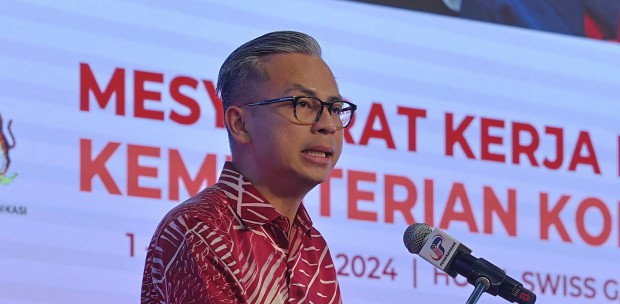How many times have we heard a rallying cry to go further, be better and achieve more? For some, wanting to be the best is inherent.
For others, it is exhausting; there will always be another milestone to achieve, another mountain to climb, and another person to beat. Why bother when you can just coast along in life and still survive?
But complacency breeds mediocrity. When we become complacent, we become comfortable with what we have. And when we fail to progress, we become one of those who get left behind. Are we becoming complacent as a person, as an individual, as a nation?
It depends on who you talk to, I suppose — the first group of people who feel that we should be happy with our lot in life and live for the moment; or the second group of people who are ambitious, motivated, and driven to go even further, be challenged even more.
Consider the English language in Malaysia, for example. Or rather the use of the English language.
When the written word was not as widespread as today, when social media had not even made its debut, and when people who wanted to be published had no other recourse than to write a book or newspaper column, there were editors and sub-editors who would go through each and every line with a fine-tooth comb.
Their job was not merely to correct the grammar, but also to debate on the use of one word over another. These days, when you can instantaneously Tweet your thoughts, Facebook your activities, Instagram your likes, and TikTok your jokes, editors no longer have a role to play. Anyone can say anything — grammar, spelling and personal feelings be damned.
But social media is one thing. Brochures, advertisements and official websites are another. I personally cringe at some of the brochures that we have to send out to other countries, inviting them to participate in our programmes.
Even a quick browse through some of the websites of institutions of learning (some of them offering English language courses) will reveal not only minor mistakes but also glaring ones.
One of my bosses, whose command of the English language was superb, once said forlornly — "I am not paid to be an English teacher", and just refused to correct the grammatical mistakes. I too, let a lot of the mistakes I saw, just slide, thinking that it was not my place to point out another writer's shortcomings.
Now I realise how wrong this was. I learnt best when someone taught me, and I had many who corrected me on this wonderful life journey. Why should it be any different for others? Why should we deprive others of the chance to also learn and be better?
Health director-general Tan Sri Dr Noor Hisham Abdullah said it best in a recent interview — "Success leads to complacency. Complacency leads to failure".
In this, he was quoting the CEO of Intel Corporation, Andrew Grove, who had one more chilling last line to that saying: "Only the paranoid survive."
I never fully comprehended the full depth of that phrase until the Covid-19 pandemic showed us how devastating complacency could be. We were complacent when our efforts to contain the spread of the virus first began to bear fruit.
We started socialising and celebrating even before we conclusively beat the pandemic. We became complacent because "it had been so long since we could dine outdoors and return to what we knew before".
Throughout history, we have seen the danger of being complacent. Many companies from developed countries failed to capitalise on their upward trajectory because they rested on their laurels.
The Apperson motor company from the United States, popular in the 1920s, failed because it did not innovate enough to remain competitive.
In their book, Why Nations Fail, economists Daron Acemoglu and James Robinson confirmed that entities that underwent constant change and improvements in technologies — even though they were at the top of the field — continued to succeed.
Those that did not, undoubtedly failed. Complacency is, therefore, a strong precursor to failure.
"The tragedy of life is often not in our failure, but rather in our complacency; not in our doing too much, but rather in our doing too little; not in our living above our ability, but in our living below our capacities." — Benjamin E. Mays
The writer is a foreign service officer, who writes on international affairs with particular emphasis on Africa
The views expressed in this article are the author's own and do not necessarily reflect those of the New Straits Times






